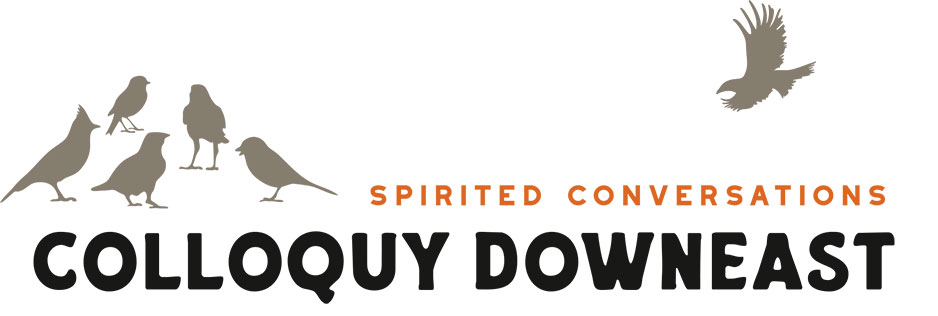Crime & Punishment
| |||||||
WE REGRET THAT THIS COLLOQUY IS CANCELLED. WE HOPE TO RESCHEDULE IT AT A FUTURE DATE.
The Crime and Punishment colloquy aims to cover two basic areas – crime in the United States, and the punishment people get when they’re convicted of crimes. The crime session will delve into discussion of felonies and misdemeanors – felonies are more serious and frequently land the defendant in prison; misdemeanors usually result in a fine/probation/less than a year’s jail time. We’ll also look at how pervasive crime is in our daily lives and national culture – crime is the staple of news reports and is the stuff of bestselling novels, TV series and movies.
Of the four colloquy sessions, three will be devoted to the punishment end of things, but crime will be the basic thread that wanders through all these talks. We will examine how many of our fellow citizens (along with some non-citizens) are imprisoned in the U.S. (about 2.2 million people), how prisons operate and the problems that arise when the state puts people behind bars and deprives them of their freedom. We are in the process of arranging a visit for the colloquy group to the Maine State Prison in Warren, about 65 miles from Blue Hill. The point of this visit is to see how prisoners live and how corrections officers work. For the last colloquy session, we’ll talk about the impressions colloquy members got from that visit. (On April 18, 2017, the PBS series “Frontline” aired an absorbing documentary on solitary confinement at the Maine State Prison.)
Michael Taylor is a retired reporter and editor who worked at the San Francisco Chronicle for 36 years. While at The Chronicle, he covered crime, courts, breaking news and other subjects. He also wrote stories about state and federal prisons.
Syllabus/Readings
Session 1: Crime
Outlining crime in general – discuss felonies, misdemeanors and prison/jail time/parole/probation. Why is there so much crime; or is there really that much crime? Talk about how culturally pervasive crime is in our daily lives – it’s the bread-and-butter material for news reports; the stuff of bestselling novels; the staple of TV and the movies. We’ll look at the differences between these dramatic portrayals and what happens in real life. We’ll focus on crime in Maine and elsewhere, examining what happens day in and day out – much of it in our local area is drug abuse, burglaries, domestic violence, drunken driving. (This session can be augmented by optional visits to the Hancock County court house to watch as the criminal docket is called.)
Suggested reading: The Wikipedia entry on Crime in the United States is indispensable as a framework and guide; participants should also read the crime stories in the Bangor Daily News, Ellsworth American (check the weekly crime log briefs), and The Weekly Packet.
Session 2: Prison and jail
General definition: jail is usually a city or county facility where you’re held pending trial. It is also where you serve one year or less, usually for misdemeanors. Prison is where felons are sent.
The stats: the U.S. has about 2.2 million people behind bars. The lion’s share, 1.35 million, are in state prisons. The rest are in city or county jails (646,000), federal prisons (211,000) and youth offender facilities (34,000). The U.S. has the largest prison population in the world. On a per capita basis, we’re second, right behind the Republic of Seychelles. We’ll talk about how we got to be the world’s jailer.
Suggested reading: the website of the Prison Policy Initiative, an advocacy group that nevertheless has a wealth of information on its site. Also, “The Caging of America,” from a January 2012 issue of The New Yorker; these are just two examples of what can be tons of information on this subject.
Session 3: Field Trip
If all goes according to plan, we’ll take a field trip to the Maine State Prison (pop. about 900) in Warren, some 65 miles from Blue Hill, and about 10 miles west of Rockland. Maine’s lone state prison was built in Thomaston in 1824 and was moved to a new facility in Warren in 2002. A state prison is a stark, no-nonsense place and usually makes an equally stark impression on visitors.
Session 4: Wrap-up
We’ll discuss our visit to the state prison, what prisons are like, how people live in them, how people work in them, the issues of solitary confinement and brutality on inmates. This session will be buttressed by selected samples from prisoners’ writing. Suggested reading: short story by Kenneth Brydon (doing life in San Quentin for murder), ; it’s one of hundreds of short stories, poems and novels being written by inmates in the U.S. We’ll look at various selections from some of these works: Prison Noir (15 stories from prisoners, ed. Joyce Carol Oates); Doing Time: 25 Years of Prison Writing.
▲ Hide...
▼ Registration
Registration
Bookings are now closed (or the colloquy has been cancelled)
We aren't currently accepting bookings for Crime & Punishment.
If you are trying to pay for a colloquy that you've already attended or have questions about refunds, please contact our Treasurer to work out the details.
▲ Hide...


